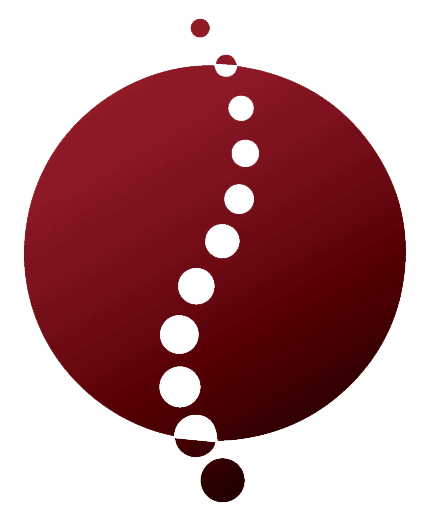At Cambridge Physiotherapy & Rehab Center, we specialize in treating hip adductor tendinopathy, a mobility-impacting condition. Our healthcare experts in Cambridge devise personalized treatment plans for optimal recovery and mobility enhancement.
Understanding Hip Adductor Tendinopathy
Hip adductor tendinopathy is a condition characterized by pain and tenderness in the inner thigh or groin area, often the result of overuse, strain, or injury to the adductor muscles and tendons. This condition can affect athletes and non-athletes alike, impacting daily activities and sports performance.
Causes of Hip Adductor Tendinopathy
Hip adductor tendinopathy often results from conditions that place repetitive stress or sudden strain on the adductor muscles and tendons. These can include:
- Repetitive Stress: Activities that involve frequent leg movements, such as running, soccer, or ballet, can over time strain the adductor muscles, leading to tendinopathy.
- Sudden Increases in Activity: Rapidly increasing the intensity or duration of physical activity without adequate conditioning can cause injury to the adductor tendons.
- Direct Injury: Trauma or direct impact to the groin area can initiate tendinopathy by damaging the tendons directly.
- Muscle Imbalance: Weakness in the hip adductor or surrounding muscles can lead to compensatory strain on the tendons, contributing to the development of tendinopathy.
Understanding these causes is crucial for preventing hip adductor tendinopathy and for tailoring effective treatment plans.
Symptoms of Hip Adductor Tendinopathy
The symptoms of hip adductor tendinopathy can vary but typically include:
- Pain in the Groin Area: A hallmark symptom, often described as a sharp or aching pain that is localized to the inner thigh or groin.
- Discomfort During Movement: Pain may be exacerbated when moving the legs, particularly during activities that involve the hip adductors, such as running, squatting, or turning.
- Tenderness: The affected area may feel tender to the touch, with the discomfort increasing upon applying pressure.
- Stiffness: Some individuals may experience stiffness in the groin or inner thigh area, especially after periods of inactivity or upon waking.
Recognizing these symptoms early and seeking professional evaluation is key to effective treatment and recovery.
Personalized Physiotherapy Programs for Effective Treatment
Physiotherapy is at the heart of our treatment strategy for hip adductor tendinopathy. Our personalized programs are designed to:
- Strengthen the Hip Adductors: Targeted exercises to gradually build strength in the hip adductor muscles.
- Improve Flexibility: Stretching routines to enhance flexibility and reduce tension in the affected tendons.
- Pain Management: Techniques and modalities to alleviate pain and facilitate the recovery process.
Additional Supportive Treatments
We also offer supportive treatments and guidance to complement physiotherapy, including:
- Activity Modification Advice: Recommendations to adjust your activities and avoid actions that may exacerbate the condition.
- Ergonomic Assessments: Tips to improve your workspace and daily habits to support recovery and prevent re-injury.
- Nutritional Counseling: Guidance on dietary choices that may support tissue repair and overall well-being.
Other Services We Offer
In addition to hip adductor tendinopathy treatment, Cambridge Physiotherapy & Rehab Center provides a range of treatments and services to address various conditions and support your health journey.
- Physiotherapists
- Massage Therapy
- Orthotics
- Foot Care
- Scoliosis Treatment
- Rehabilitation for the Elderly
Why Choose Us for Your Treatment Needs
At Cambridge Physiotherapy & Rehab Center, we understand that choosing the right clinic for your treatment is a significant decision that impacts your recovery journey. Here’s why our clinic stands out:
- Expertise and Experience: Our team is composed of highly skilled professionals who specialize in a range of conditions, ensuring that you receive expert care tailored to your specific needs.
- Personalized Care Plans: We believe that every client is unique, and so should their treatment plan. Our approach involves a thorough initial assessment to understand your condition fully, followed by the creation of a customized treatment plan designed to achieve your health goals effectively.
- State-of-the-Art Facilities: Our clinic is equipped with modern equipment and facilities to ensure that you receive the best possible care.
Stride Towards Relief
If you’re experiencing symptoms of hip adductor tendinopathy, Cambridge Physiotherapy & Rehab Center in Cambridge is here to support your path to recovery. Contact us today to learn more about our treatment options and to schedule your consultation. Let us help you return to your active lifestyle with confidence and comfort.
Don’t Let These Hip Conditions Keep You Down
|
|
Hip Adductor Tendinopathy Treatment Cambridge FAQs
How Long Does Recovery from Hip Adductor Tendinopathy Typically Take?
The duration of recovery from hip adductor tendinopathy varies depending on several factors, including the severity of the condition, the individual’s adherence to the treatment plan, and their overall health. Generally, you may begin to experience relief within a few weeks of consistent treatment. However, complete recovery and return to full activity levels can take several months. It’s important to maintain open communication with your healthcare provider throughout the process to adjust the treatment plan as needed and ensure the best possible outcome.
Can Hip Adductor Tendinopathy Recur After Treatment?
Yes, hip adductor tendinopathy can recur, especially if the initial causative factors, such as specific sports activities, overuse, or inadequate rehabilitation, are not properly addressed. To minimize the risk of recurrence, it’s crucial to follow a comprehensive treatment plan that includes not only symptom relief but also strategies for prevention. This may involve ongoing strength and flexibility exercises, modifications to activity or training regimens, and regular check-ins with a healthcare provider to monitor for any signs of re-injury.
How Can I Prevent Hip Adductor Tendinopathy?
Preventing hip adductor tendinopathy involves a combination of strengthening, flexibility, and preventive measures tailored to your specific activities and risk factors. Regular exercises that target the hip adductor muscles can help build strength and resilience, while stretching can maintain flexibility and reduce tension in the area. Additionally, gradual increases in activity intensity, proper warm-up and cool-down routines, and attention to technique during physical activities can help minimize the risk of overuse injuries. Consultation with a healthcare provider for personalized advice is also beneficial in developing an effective prevention strategy.
Can Hip Adductor Tendinopathy Affect Other Areas of the Body?
Yes, hip adductor tendinopathy can affect other areas of the body due to compensatory movement patterns that develop as you unconsciously try to avoid pain. This can lead to imbalances and strains in other muscles and joints, potentially causing additional issues such as lower back pain, knee problems, or altered gait. A comprehensive treatment plan that addresses the root cause of the tendinopathy and encourages balanced muscle strengthening and flexibility can help prevent these compensatory issues. Regular follow-up with your healthcare provider is important to monitor your progress and adjust your treatment plan as necessary.
Cambridge Physiotherapy & Rehab Center
895 Langs Dr Unit #2, Cambridge, ON N3H 5T6, Canada
(519) 219 5428
Hours:
Monday: 9 AM–5 PM
Tuesday: 9 AM–8 PM
Wednesday: 9 AM–5 PM
Thursday: 9 AM–8 PM
Friday: 9 AM–5 PM


